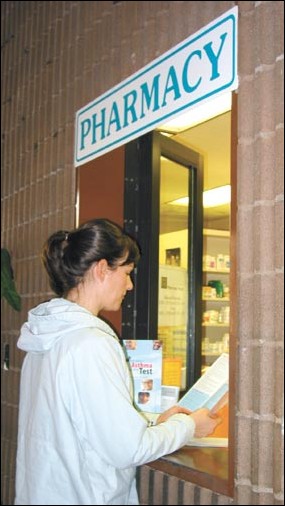Health Center offers CSUS students more than just STD testing

Image: Health Center offers CSUS students more than just STD testing:Photo by Gerylyn Rojo/State Hornet:
February 26, 2003
Not many of us have personal experience digging ditches. We have grasped the idea that working a construction or service job, while it might be noble, is a dead end and a hard life.
Is the life of a student or white-collar employee really that cushy, though? Late hours studying, mental stress, sitting at a desk and generally limited physical activity can take their toll on your body and mind. Maintaining your health as a student can be a challenge.
On campus health resources are underutilized. Several students I spoke with were unaware of the health center and its services. “I thought they only excused you from class if you were sick,” said sophomore Katie Wiggins.
Another student who wishes to remain unnamed only knew about free testing for sexually transmitted diseases.
“Young adults, ages 19-24, were at the greatest risk of being uninsured, with 33.1 percent of this group lacking health insurance,” according to the 2000 Medical Expenditure Panel Survey of the Agency for Healthcare Research and Quality. Sacramento State students are this group in crisis.
Statistics suggest that demand should be higher than it is now. Many students, minorities and men are uninsured when compared with the general public. The Student Health Center is working to address this crisis for these groups.
What the Health Center offersThe health center is paid for by a required fee of $38 per student a semester. Doctors there provide basic medical services to get you past the flu or that hacking (not whooping) cough that has been going around campus recently.
“We provide many services, but this is a clinic and not a hospital,” said J. Weiler a supervisor at the health center. “This is not qualifying coverage in federal statistics.”
Even students who purchase augmented services are not really insured. For an extra $20 fee each semester, students can obtain physicals, inoculations, STD testing and treatment of physical injuries at no or reduced cost. There is even an optometrist on campus once a week who can update your prescription.
All of this can cover the basics. But if you are diagnosed with a more serious ailment, you will realize that your coverage at the Student Health Center has flat-lined. There is no surgery, cancer treatment or hospitalization of any sort available, according to Weiler.
Student alternatives to the Health Center
Different types of health coverage and providers abound. It can be difficult to determine which plan or provider is the best for you. There are HMO’s, PPO’s, MSA’s, co-payments, pre-existing conditions, benefits, outpatient and inpatient services to sort through.
A Health Maintenance Organization is a comprehensive insurance plan that provides for all or most aspects of your care. An HMO usually covers medicine, treatment and office visits at its own hospitals at little or no cost to the patient. They also usually provide very limited coverage of emergency care received elsewhere.























































































































